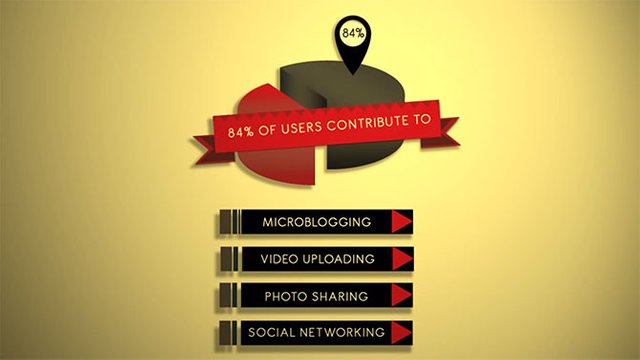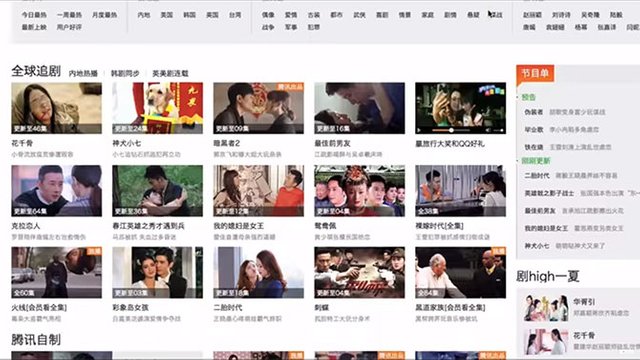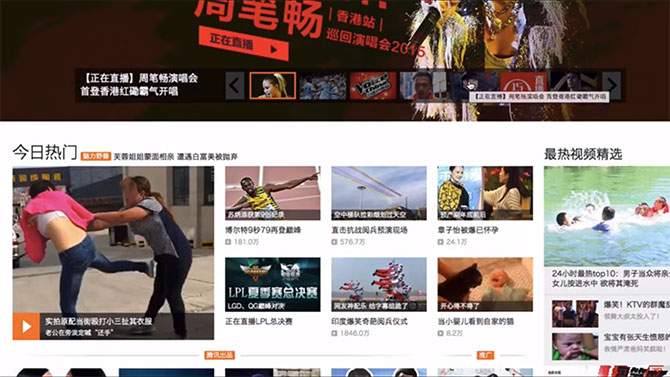Internet behind the Great Wall: What is the Internet in China?
Blocked popular worldwide sites, censors employed to remove problematic content and plenty of restrictions - it's the internet in China. Network users from your Center deal with these problems in many ways.

Internet behind the Great Wall: What is the Internet in China?
The Internet is the main manifestation and symbol of globalization. It would seem that in a world of different cultures, religions, socio-economic views, it is the network that is fully universalist. Nothing is more wrong - even in China, the world's most populous country, the Internet is very different from the one we know.

Although the People's Republic of China, in the economy, declares a bizarre combination of socialism with "Chinese face" and capitalism, within the Internet has the censor face of the darkest totalitarianism. Forget about Facebook, Google, Instagram - well, unless you know how to bypass the lock, but about it in a moment. A bunch of facts to start with for illustration of scale.
The Chinese Internet is already more than 720 million users, which is slightly over 52% of the total population of the country. This is almost the same as the US and EU combined. This is a huge "market" with gigantic business potential. Sadly for the Chinese authorities, it is also a threat. The Internet is, after all, the fastest, though still not the best, source of information about how it really was ... Even with Tibet and the Tian'anmen Square in 1989. The truth about the occupation of the province or the massacre of students 28 years old can not reach the people - that is why the Internet can not be free.
Blocking access to external sources of information such as the BBC, CNN, or social media is carried out through so-called. Chinese fire brigade (this is a connection on the one hand to the Chinese big wall, on the other hand, to the computer used by the IT security concept firewall.
This is the result of the Golden Shield project, run by the Chinese authorities since 1998, aimed at introducing checks, censorship and online traffic monitoring in the PRC area. The project is managed by the Ministry of Public Safety and it is commonly stated that its purpose is to increase public safety and police effectiveness. What does it look like in practice?
And mommy knows what you are watching on these internet?
Every Internet provider in China must employ an additional employee, not by free recruitment. Local censors are called "big mothers" by local authorities. Their role is to moderate and remove all political content. This is happening in different ways, by removing comments and larger content, sometimes by removing prohibited words and leaving gaps / evidence of the presence of power. The list of uncomfortable words and phrases is constantly updated.
Censorship also works at the level of search engines. Search queries are compared by a government system with a list of forbidden words, and any site containing banned phrases is hidden. Forbidden words are not difficult to guess all the passages associated with the Western world such as democracy, freedom of speech, anti-communism, communist criminals, etc., but also those directly related to China, such as Tian'anmen Square, the Dalai Lama, Tibet or others. The system blocks content related to the Falun Gong movement, Buddhism, websites linked to the Taiwanese government, revealing crimes committed by the communist authorities in China. We certainly will not see in our results Guardian, Voice of America, Der Spiegel, etc.).

Of course, the active attitude of censorship does not mean that the Chinese are condemned to only one "truth". These blocks are bypassed by, for example, popular virtual private networks (VPNs). I have used these myself in being equally authoritarian Iran and Western China. I was no exception because most of these "gates of freedom" are used by young people.
There is also a separate Tor network that provides free and unlimited download and download. However, this second option does not give you a 100% security guarantee as it is regularly developed by government IT professionals. On the issue of avoiding government blockades, the black market in China is very dynamic, and new software is emerging from the Internet in an unhindered way. Then there's the cat and mouse game - independent programmers are looking for ways to bypass censorship, the government knows these technologies are working out. And so in the circle.
What if we want to surf legally?
YouTube, Google, Google+, Facebook, Snapchat, Instagram and all the other wonders without which we can not imagine life are in China obviously forbidden. In contrast to other censorship countries (such as Iran) in China, this ban motivates the dynamic development of private solutions that are similar or unequivocally copy Western brands. So we have politically correct copies of the necessary communities. Very popular copies.
Mass interest in social media is primarily due to the long-term migration of people from rural to urban areas. Newcomers simply enjoy everything that is associated with a modern lifestyle. The long-lasting 2 + 1 family model, which for many Chinese is tantamount to a small family and loneliness for old age, is also important. The media compensates for this.

It is not difficult to find Chinese counterparts of western services. YouTubem Chinese are Youku and Tudou, and like our local sites, they are used to publish movies. Less videos here with cats and compilations, and more prolonged offers. These channels are for many Chinese people simply a substitute for television.
The almost export hit is Chinese Twitter, or Sina Weibo. Launched in 2009, it's just a clone of Twitter, but more modern in terms of advertising. "Tweeting in Chinese" is primarily mobile, because more than half of the messages are published from smartphones and tablets. There is also a limit to the number of characters (140), as there are more than 50,000 in the Chinese (95% of the texts in the press and books are written with only the 5-6 thousand most used).
Despite this, the channel monthly records 180 million active users. Sina Weibo is, however, more or less used to publish funny pictures and movies, jokes. This is also the main activity of users, publishing their own copyright content is quite unpopular - certainly there is no known in Poland plowing political opponents. This is more KQQ than the Donald Trump's political offensive.

While other western social media have one or two Chinese equivalents, Facebook has about five. The most famous of them is RenRen and its users are primarily young people and students. In 2014, the service was about 215 million users. Visually designed on Facebook, the Western media is often used to engage in political or social affairs.
Another visually similar to the real Facebook is Qzone. It has the largest number of users (over 600 million), but they are less involved and come from smaller towns and provinces.
Kaixin001 is again a service for young people working in corporations and has a strong professional character (about 160 million users). Douban, on the other hand, is a platform for people looking for all forms of culture, most often used by intellectuals (over 100 million users).
On the map of banned Western brands, the exception and curiosity may be Pinterest, which is forbidden. Still, he is not popular and his Chinese counterpart is Mogujie. It currently has about 40 million users and is still growing. Service in China has proven to be a brilliant tool for the development of all kinds of start-ups whose target group is women. Companies use Canadians to set up on-line stores, which has grown to flourish in such a popular society.

The equivalent of the western messenger is WeChat, which has exactly the same features as WhatsApp. It has a huge number of users, already over 650 million, which shows that it is used almost by everyone with Internet access in China. WeChat is also used outside of China in the Far East. Visually, the application is similar to WhatsApp. Knowing whenever a Chinese person wants to keep in contact with us, we are almost sure that WeChat will offer us. In addition to good communication, WeChat is also a huge advertising business, with the restriction that in order to place any advertisement, you have to have a registered business in China, which limits the interests to the Chinese only.
Chinese people love shopping online. The Chinese specificity in this regard is also that without complaining about complaints about products and services. Nothing unusual. In the end, the power has not yet conceded yet moaning and complaining. Well, unless it's political. On the other hand, this specific freedom of expression means that in China it is impossible to achieve commercial success without considering the client's opinion. This makes it difficult for Western brands to enter the market because they have to adhere to the public and properly carry out their advertising campaigns. That is why entering the real Facebook, with its program freedom and liberalism, is now impossible. Unless Zuckerberg convinces you really big money. All say you can buy.
Among the most commonly used search engines are Baidu or Qihoo. Everything that has the name Google is forbidden.
The popularity of Chinese counterparts in the Western media makes them unpopular.
By using a VPN, we can sign in to Google or Facebook, but finding many friends is not counted. In China, they have almost zero users. They are only those who have friends in the West, Twitter officially records 50,000. Accounts in China, which is a grain of rice in the Chinese market.

How to fight censorship? When you can not talk, show
Blocking communication through social media is not a simple matter for the Chinese authorities. Residents of the Center have developed their own online slang, which bypasses the official political censorship. When you can not talk, show. Chinese instead of words use graphics, often not directly speaking. As for the vocabulary, for example, the Chinese phrase "river crab" sounds very similar in that language as "harmony", and it is a word that is used non-stop in party narration.

In blogging slang it means repression and so the government talking about harmony does not even know how it is understood. Another example is probably the most closely followed phrase in the Chinese Internet, the date of the Tiananmen Square massacre (June 4, 1989). Internauts replace it with the phrase May 35, which is the key moment of the protest in the square. In China politically threatening posts can be considered to receive more than 500 submissions.
thank you :-)